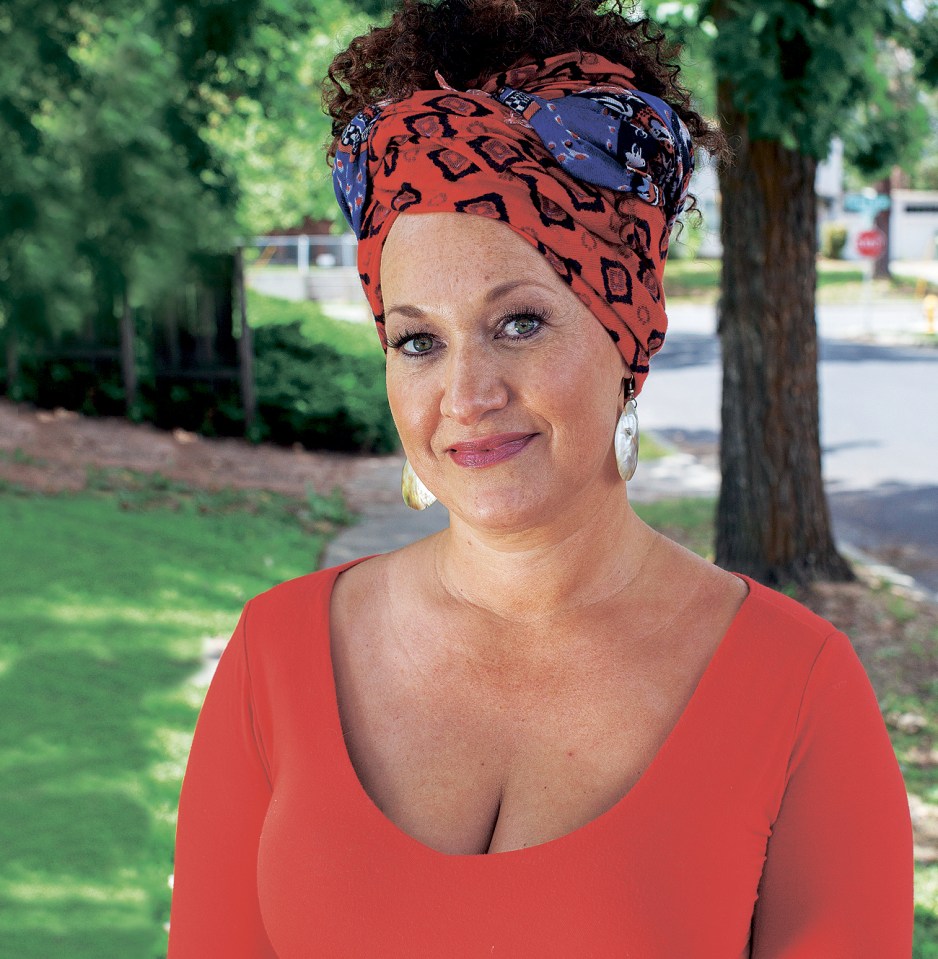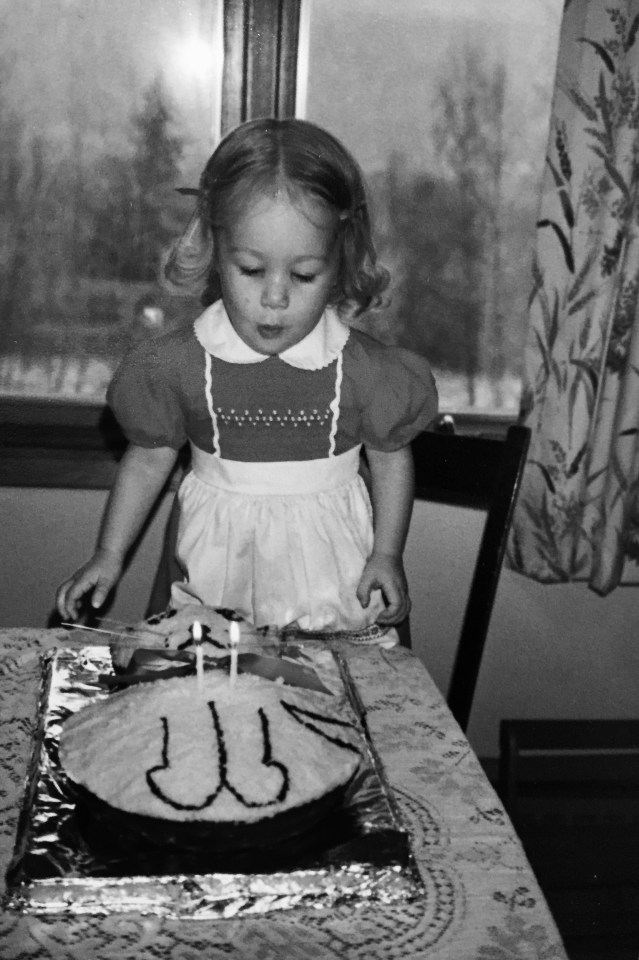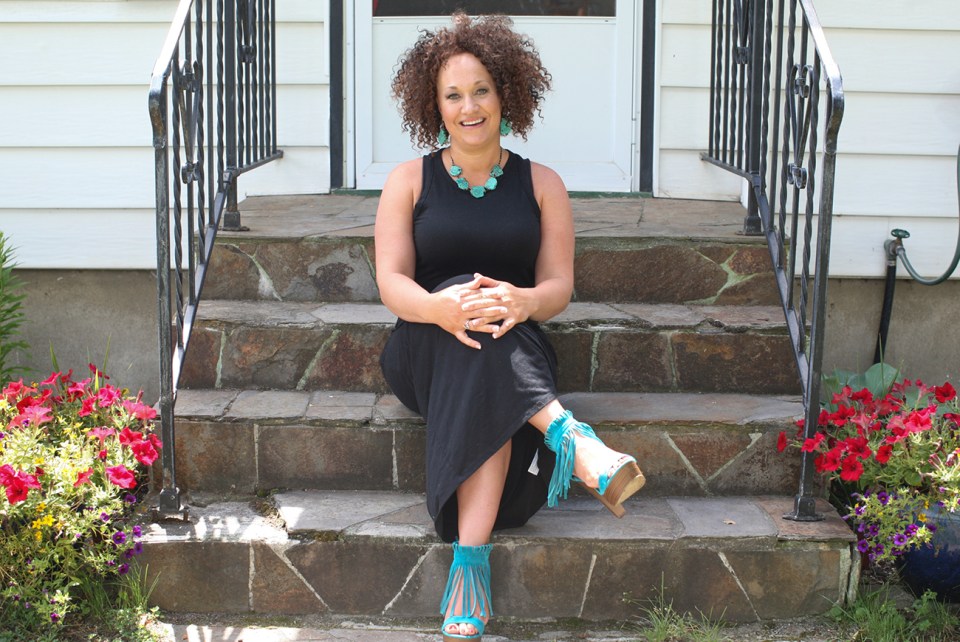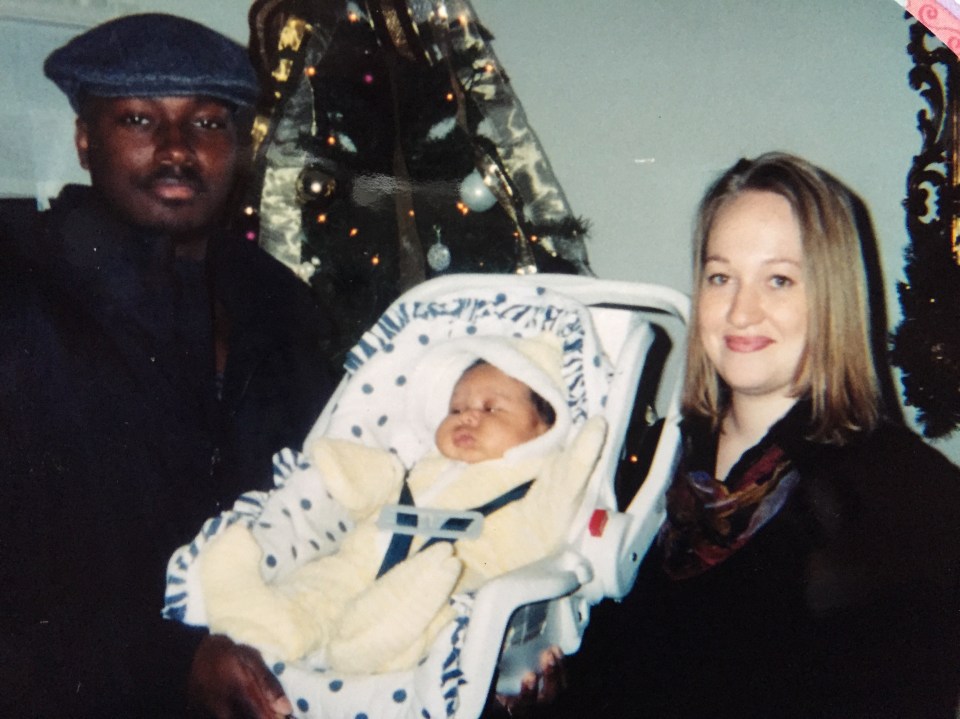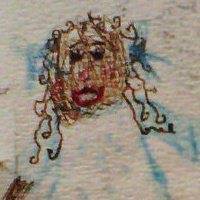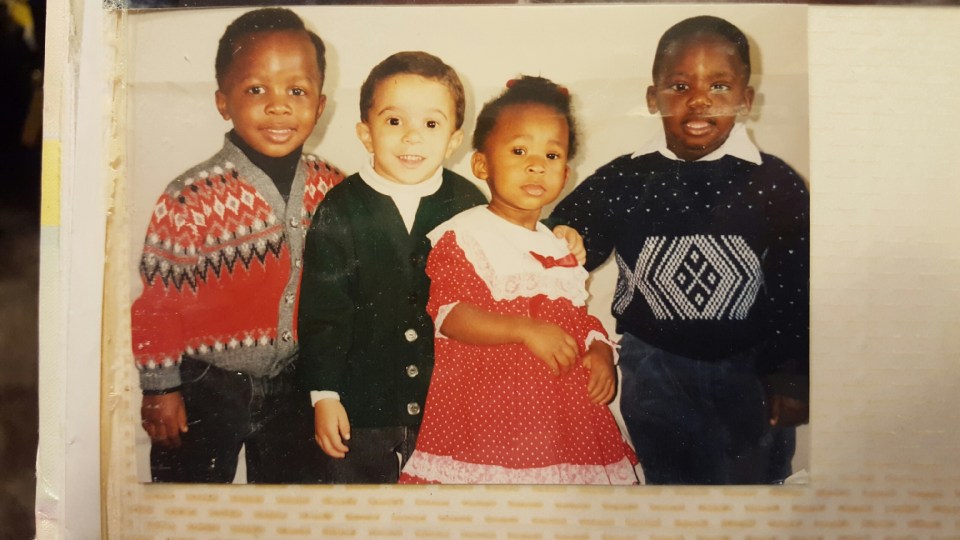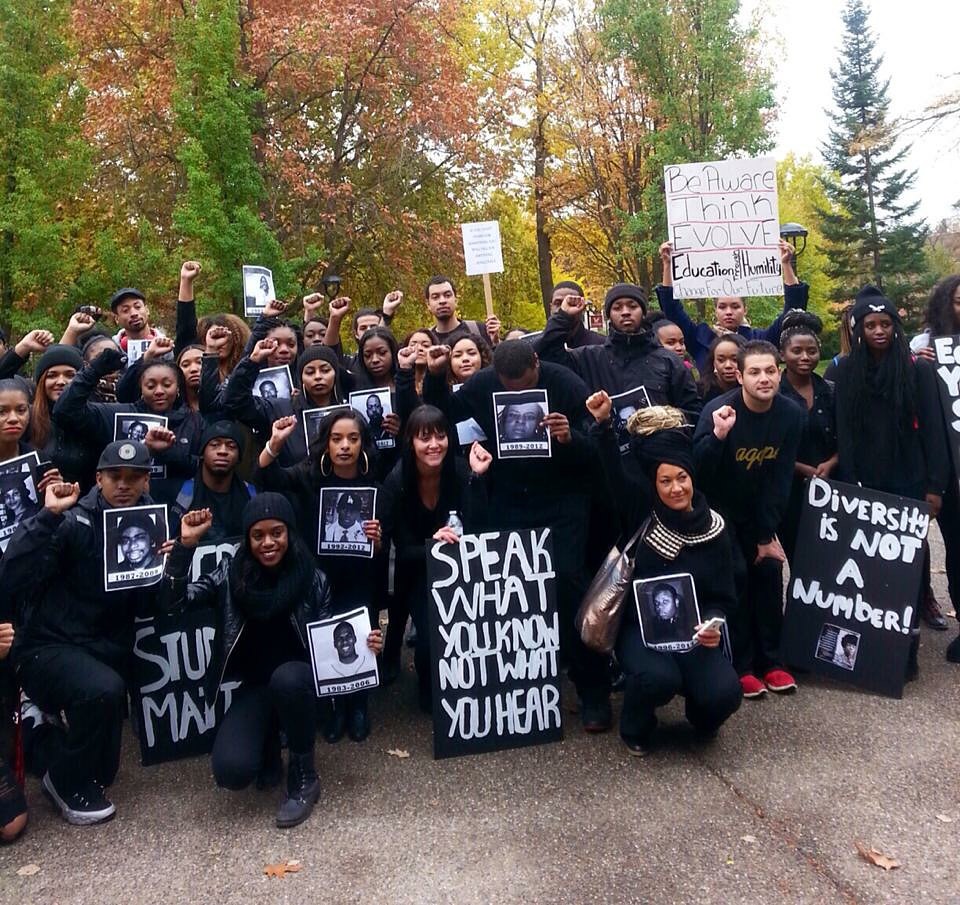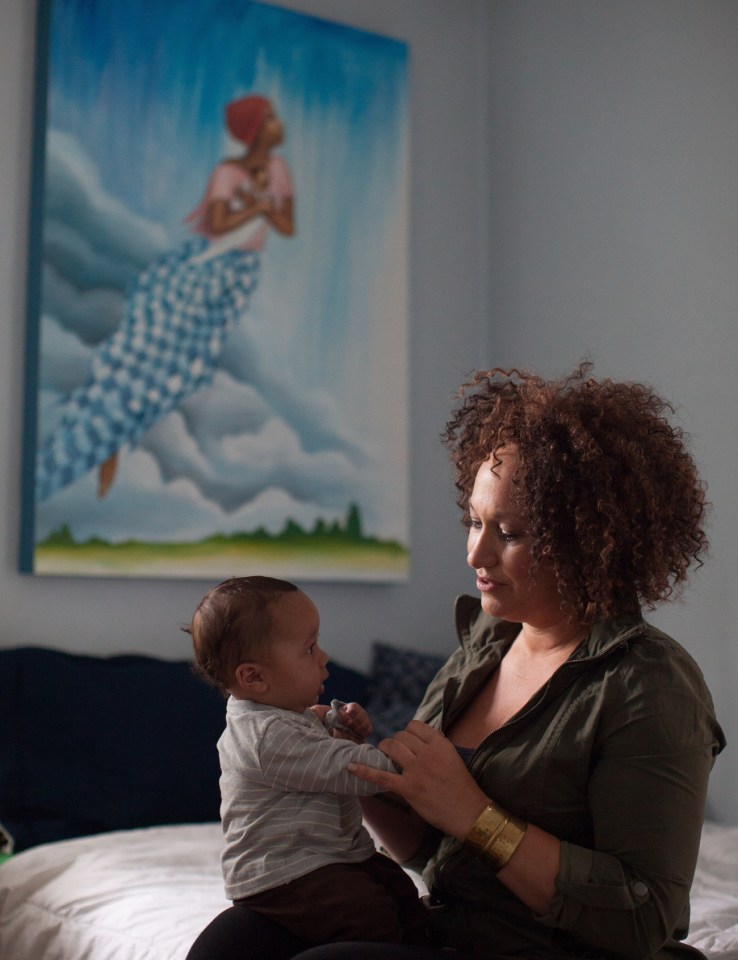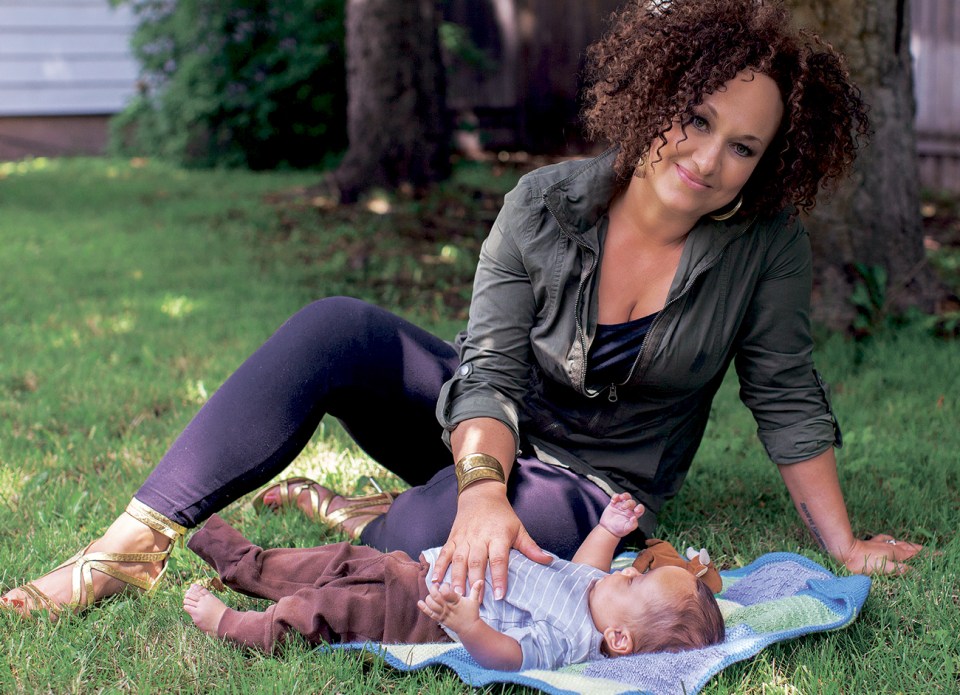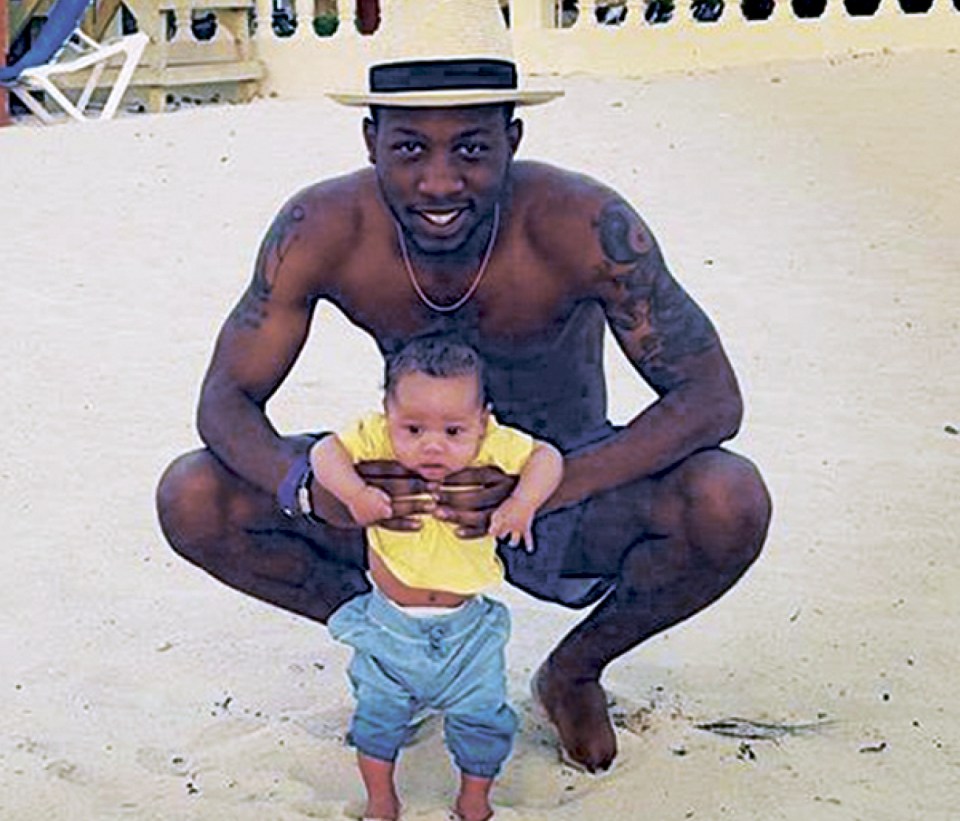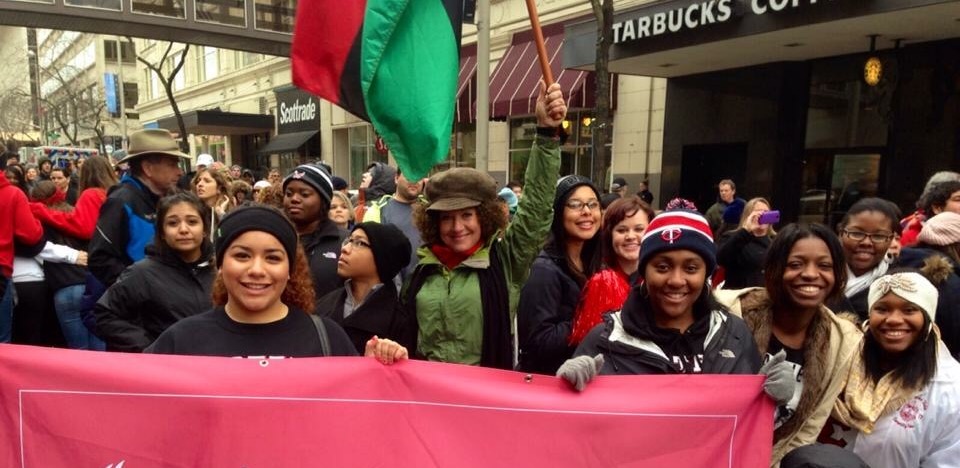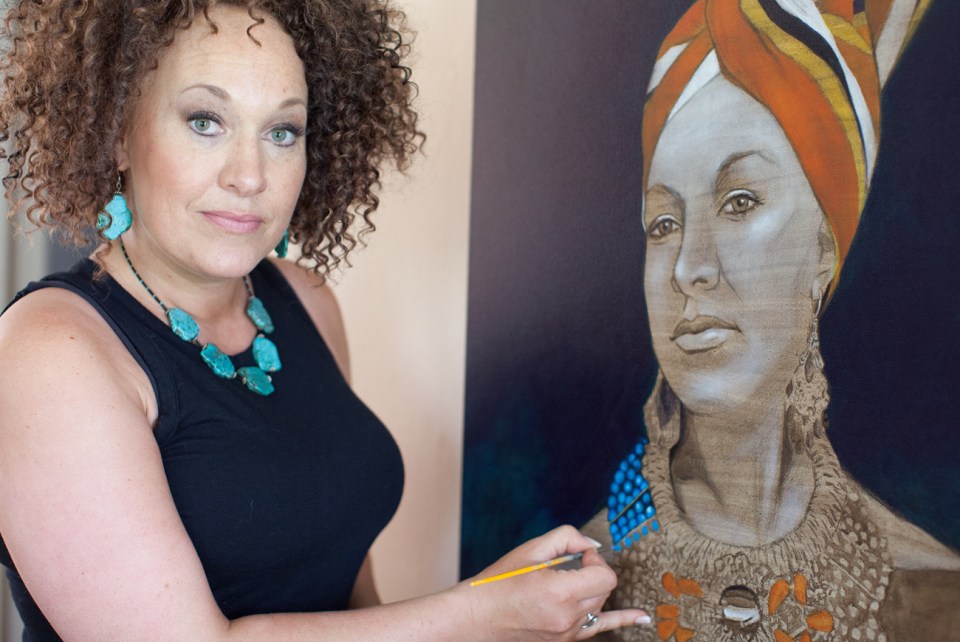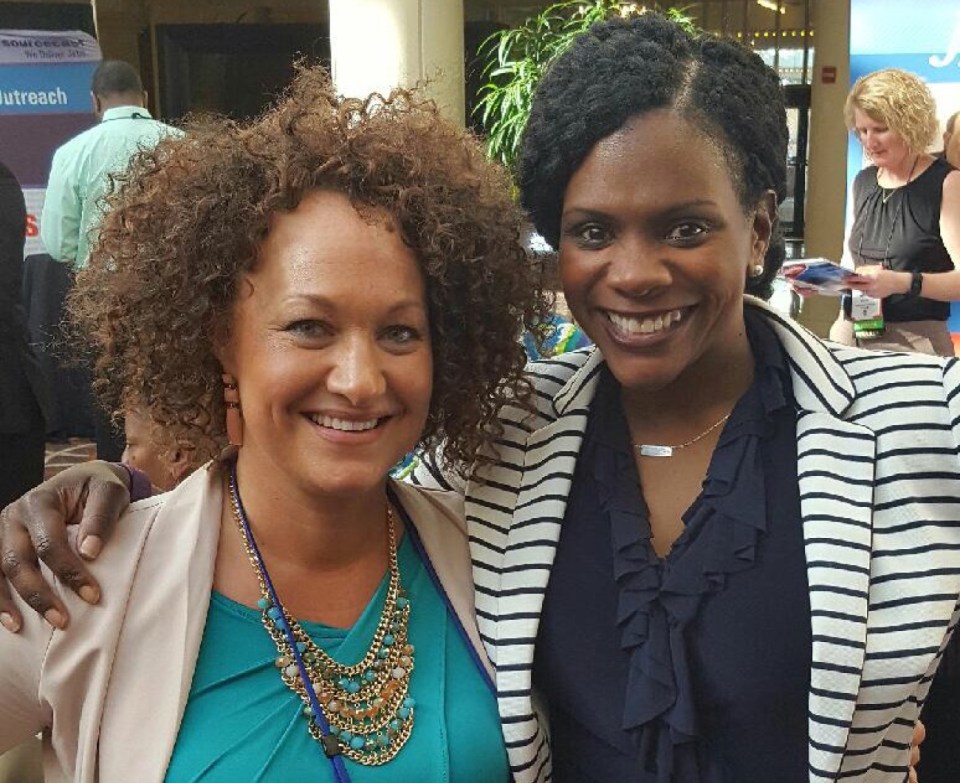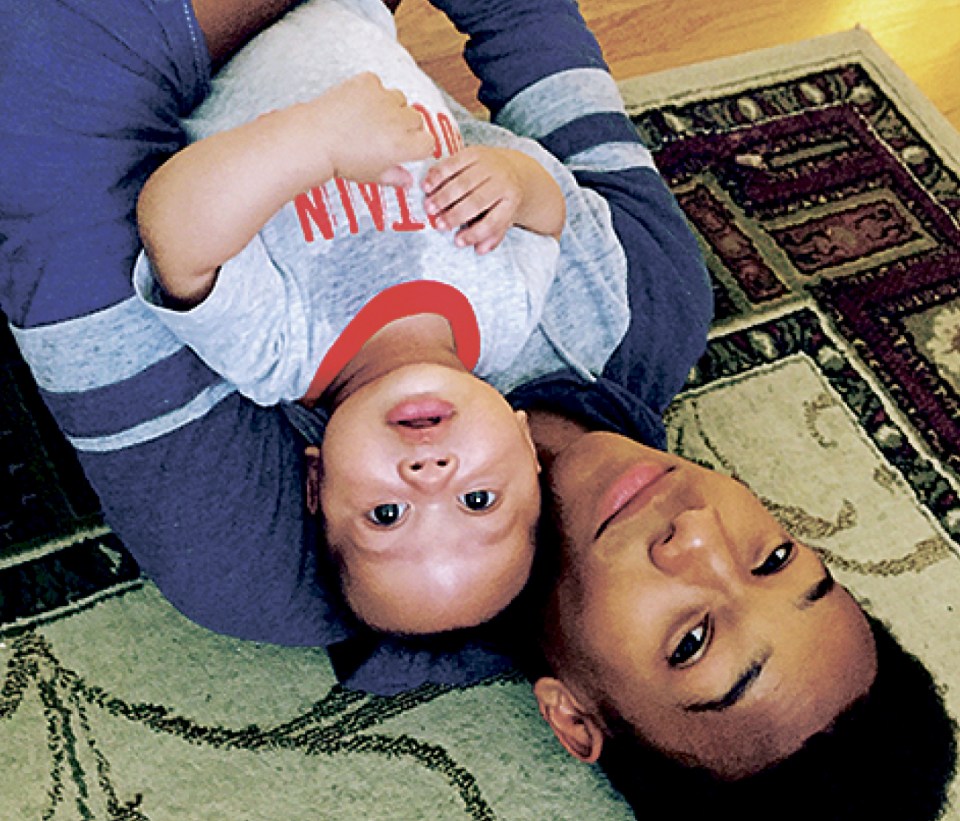The woman born white but says she’s black speaks out about her year of hell and death threats
Rachel Dolezal reveals how becoming a mum again brought her back from the brink

THE question was simple: “Are you African American?”
But it was one that left Rachel Dolezal, with her dark skin and head of brown corkscrew curls, stuttering for an answer.
It also made her globally infamous, as this much-respected “black” woman – a lecturer in African American studies at East Washington University, a prominent activist for black people, and the mother of two black sons – was in fact a Montana-raised girl who had been born to parents who claim German & Czech descent.
“I’ll never forget that day as long as I live,” recalls Rachel, 38, who lives in Spokane, Washington.
“My whole world literally came crashing in.”
She’s not wrong. The confrontation with a reporter, which was shown live on local TV last June (and has since had nearly 2.5 million views online), followed an interview about police closing a recent case of hate crimes directed toward her.
As she stormed off camera without answering the question, little did she know she’d be left jobless, friendless and fearing for her life.
“People said I’d been ‘outed’,” she says.
“But how could I be when I’ve always just been who I am?”
But it’s who Rachel is that has caused such controversy.
Her true ethnicity came into question after her estranged parents Ruthanne and Larry Dolezal decided to speak out and reveal that this highly regarded member of the black community was actually born white.
Rachel quickly tried to appease the situation in a series of TV interviews, saying she’d begun to identify as black when she was five and would use brown crayons to draw a self-portrait.
However, her parents say this never happened.
Ruthanne even called her own daughter “a master of disguise”.
But why Rachel’s parents decided to out their daughter is still unclear – she claimed it was the result of a long-standing family feud, while Larry said they just wanted to tell the truth.
In an interview, he admitted their daughter appeared to have an early connection with African Americans after he and Ruthanne adopted four black children and she began to paint art depicting their culture.
But Larry added that Rachel had “chosen not to just be herself” after her marriage to Kevin Moore, an African American, ended in divorce 12 years ago.
Larry went on to say she was representing herself as an African American woman or a biracial person and “that’s simply not true”.
So why did Rachel do it?
It was around the time between 1996 - 2000, when she attended a college in Mississippi, that Rachel made some physical changes to her appearance. She decided to stop staying out of the sun and on occasion visited tanning salons, as well as braiding her newly-brown hair.
Because of her new look, many people naturally assumed she was of African American descent.
She never corrected them because it felt natural for her and how she felt most beautiful.
“I have the unique experience of being treated as white in earlier years and being seen as black or biracial/light-skinned black in later years,” she explains.
“I’m more at home being treated as black because this group most closely aligns with who I really feel I am.”
Rachel adds that while society accepts people changing genders or altering the way their bodies look, she can’t understand why it has such trouble accepting her for what she believes is her real self.
“Race is perhaps even more fluid than gender, because scientists have proven that race doesn’t exist biologically,” she insists.
“It’s a human behaviour, a social construct, a political reality – but not something that can be tested by our DNA. I simply style my hair and live how I feel. I’ve been seen as black for years.”
Recalling the fallout of her TV interview, Rachel says: “I woke the next day to find my email inbox filled and my phone didn’t stop ringing. It was overwhelming.”
Rachel went into work at the university, but had to return home as students and staff bombarded her with questions about the scandal.
“I had support from about half my students, but it was quiet, while criticism was always loud and public,” she remembers.
“I was so shaken, all I wanted was to be home with my kids.”
Her son Franklin, 14, from her marriage to Kevin, also has a brother, Izaiah, 22, who was originally adopted by Rachel’s parents and raised as her brother.
He left the family home to live with Rachel when he was 16, after which she was granted full custody.
As press gathered outside her house, the boys had messages left on their mobiles.
“Tell your mother to kill herself,” some read.
“People soon started asking Izaiah if I was really his mother,” Rachel says.
“But he’s been brought up as my son and calls me Mum. Franklin was bullied in school, but still tried to stand up for me. I ended up having to move him to a different one and get him counselling.”
But what made Rachel’s story even more controversial was that at the time she was president of the National Association for the Advancement of Colored People (NAACP), after friends and colleagues – who’d assumed Rachel to be of black ancestry – had nominated her for the role in 2014.
The national and regional NAACP leaders spoke out in her favour, but it soon became clear that the local members didn't all support her.
A petition was set up by a fellow member to have her removed and Rachel stepped down a week later.
Her career also began to unravel at alarming speed.
After working at the university for seven years, just a week after doing the TV interview she was given 10 minutes to clear her desk.
“It was utterly devastating,” remembers Rachel.
“They made it clear it was because of the controversy.”
Then in a damning press conference, the Mayor of Spokane David Condon questioned her integrity and Rachel was removed as chair of the police ombudsman commission she was involved in.
She also lost her freelance writing role at her local paper The Inlander, which went on to print negative articles about her.
“So many things were happening simultaneously that I was just trying my best to stay alive and keep my kids safe and well,” she says.
“But I quickly became isolated from everyone and faced a huge storm.”
Inevitably, the trolls went into overdrive, posting a barrage of abuse on Facebook and Twitter, with “Transn****r”, “N****r-loving c**t bitch” and “Monkey” just some of the insults.
“I remember one person saying they hoped I’d ‘get f**ked by an HIV-infested d**k and die’,” says Rachel.
“I received many messages saying I needed to commit suicide. I was even stopped in the grocery store and laughed at. Strangers would take pictures of the kids and me and post them online.
“It was so frightening. I am not pro-gun, but I made sure I had a handgun with me – I needed to protect my children.”
Despite being in fear of her life, Rachel says it’s the loss of friendships that’s most painful.
“It didn’t matter if people were white, black, rich or poor, everyone had a strong opinion on me.”
RELATED STORIES
Globally, Rachel became a laughing stock.
US TV presenter Jon Stewart openly mocked her, saying: “So her mouth says: ‘I don’t understand the question,’ but her eyes say: ‘F**k. I’m busted.’” And the mocking hashtag #AskRachel went viral.
Then came offers for reality shows plus a six-figure sum to appear in a porn movie.
But it was a route Rachel refused to pursue, and with no income, she used food stamps to buy groceries and turned her hobby of braiding black hair into a job to make ends meet.
Her lifeline came a month after the story broke when Rachel discovered she was pregnant.
“The father had ended the relationship as the controversy happened,” she explains.
“But expecting a baby was the biggest gift. I’d suffered from eating disorders in the past after times of stress, but knowing I was expecting forced me to look after my body.
“Without my kids I’m not sure you’d be speaking to me. But losing their mom would have been worse than what was happening, and I could never be that selfish.”
As the weeks went by, high-profile support began to emerge from the likes of Cher, Whoopi Goldberg and R&B singer Keri Hilson.
In an interview in Vanity Fair magazine, Rihanna even called Rachel “a bit of a hero”.
Next, human rights activist Malcolm X’s daughter Attallah Shabazz got in touch.
“She said: ‘Keep remembering who you were before this happened and don’t let it define you,’” remembers Rachel.
“It meant so much.”
In a sign of solidarity, last September Ambassador Attallah Shabazz invited Rachel onto a panel for International Day of the Girl at the Mohammed Ali Center in Lousville.
Since then, Rachel has done a yet-to-be-aired TED talk and been invited to Antigua to help set up a non-governmental organisation.
Last month, she was a keynote speaker in Washington DC for the American Association for Access, Equity And Diversity (AAAED).
Following ridicule for naming her son, who was born on February 16, after black poet Langston Hughes, a representative from the poet’s estate also spoke out in support of Rachel as a “voluntary Negro” – a white person who chooses to fight for black rights.
However, despite these growing signs of acceptance, Rachel is still struggling to get paid work and supplements her income selling her art on Etsy.
And the abuse continues on a daily basis.
Last month, a man came to her home and shouted insults through the nursery window.
Just last week a banana was left on her car windscreen.
“I don’t trust many people,” she admits.
“I’d love to move elsewhere, but can’t because of a custody arrangement with Franklin’s father.”
Despite receiving much of her abuse via social media, Rachel insists she won’t shut down her accounts as others – including black people – view her as a role model.
“I owe it to those who are supportive to stay online,” she explains.
“Some have been victims of injustice or have complex identity issues and have asked for my help.”
Talking about the damage to her reputation, Rachel admits: “It was so far-reaching it feels like a very long road to healing that gash.”
And while she doesn’t know what the future holds, she credits Langston for giving her hope.
“A baby adores you regardless, and his love and acceptance make up for the hate and rejection,” she says.
“Ultimately I know who I am and, more importantly, my family know who I am, too. I’m mum to three black sons, a nurturer and activist, and my identity is the same as it’s always been.
“I’m committed to showing my kids that no matter what terrible things happen, nothing is truly the end of the world.”


